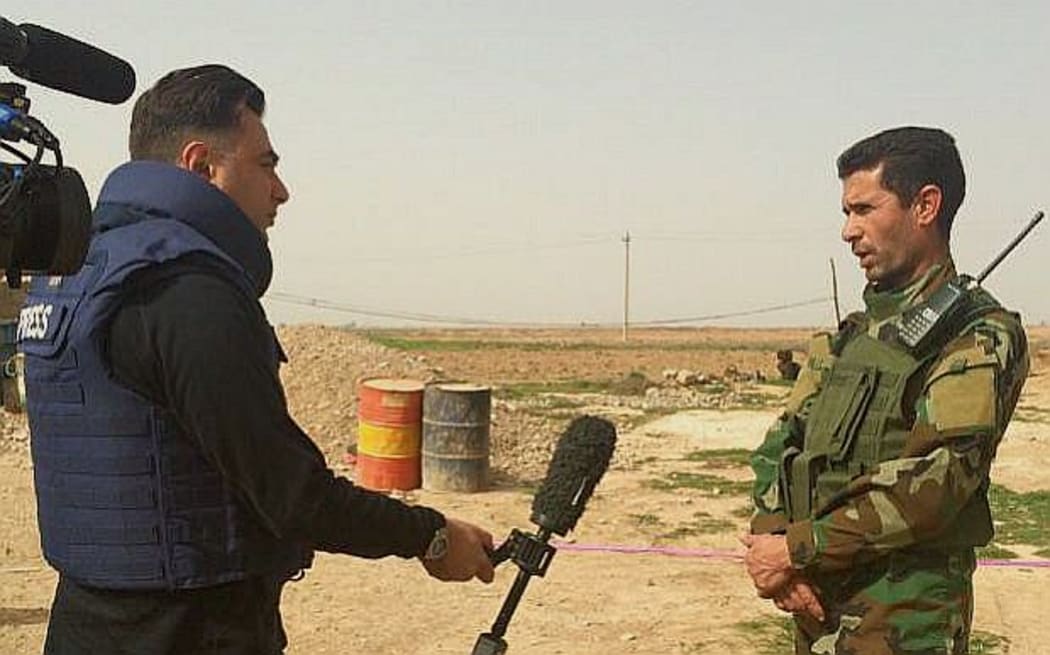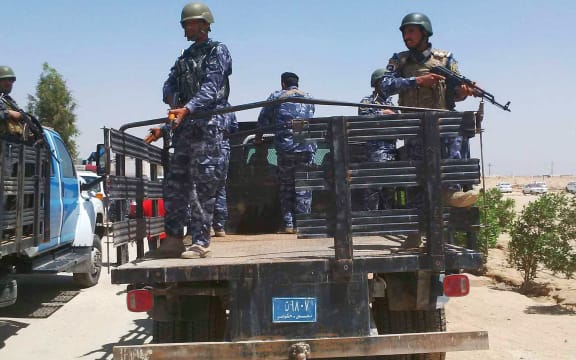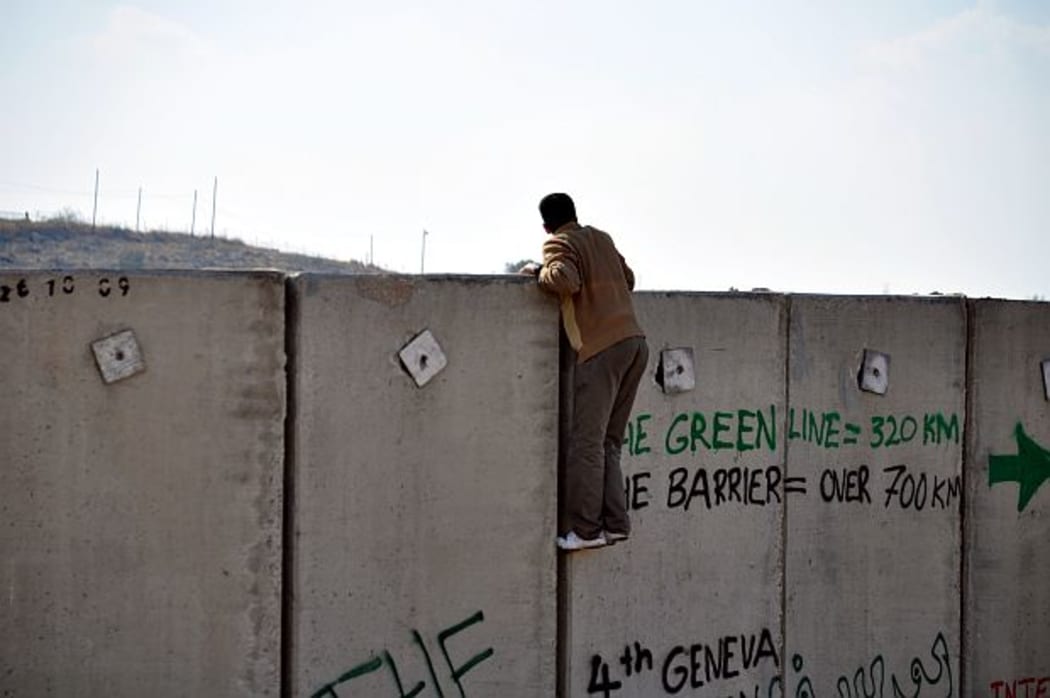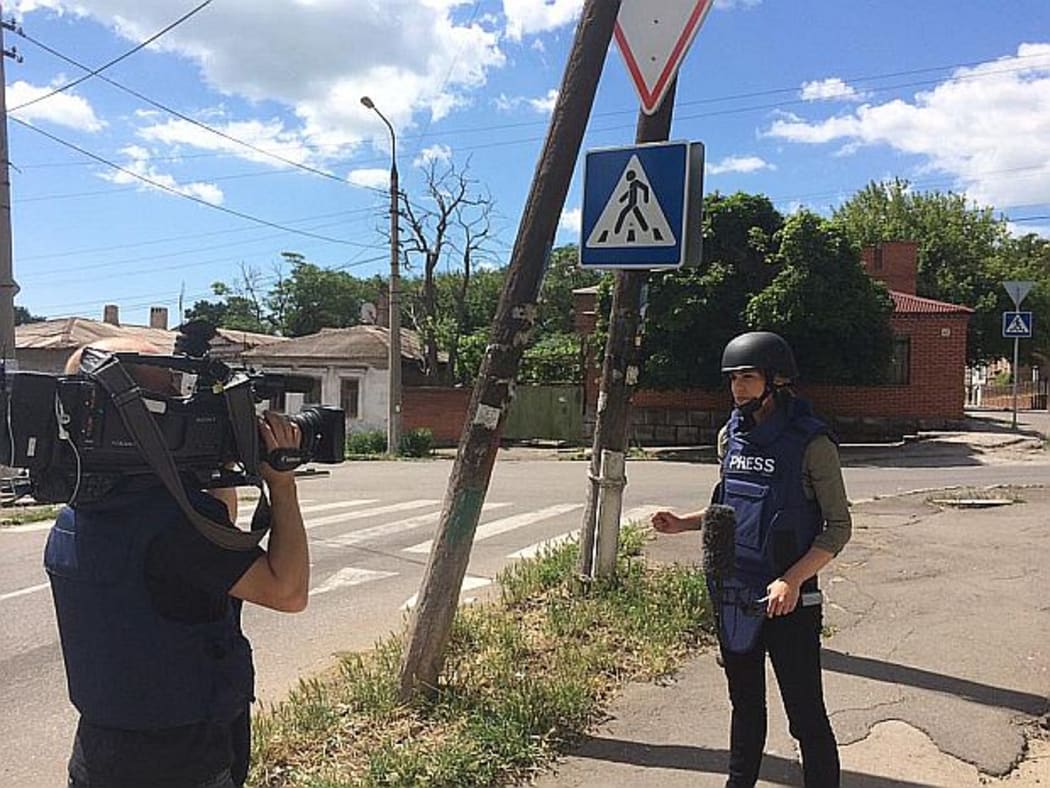By Kim Vinnell
"I want to be affected by it. I don't want to feel that I'm blasé about it. That death, murder, destruction have become normal."
Despite working in conflict zones for most of the past 15 years, journalist, Imran Khan still feels passionately about conveying to readers, listeners and viewers all the impact of the events he is witness to.
Insight has been exploring whether it is possible for reporters working in areas such as the Middle East to continue to deliver balanced news, when they have become the targets.

Imran Khan reporting in Baghdad Photo: (Imran Khan)
Listen to Insight - Blurred Frontlines - The Changing Nature of Journalism
"Because if they become normal then I've lost a piece of myself, and the story won't get the treatment it deserves either," he says.
Almost a decade ago, psychiatrist Anthony Feinstein explored the stress on those working in war zones in his book 'Journalists Under Fire' .
"When news organisations sanitise the content of news, pandering to their viewers' sensitivities, they also inadvertently cleanse the image of the working lives of war journalists, obscuring many of the risks and dangers that they face"
The images viewed on television, in papers and online - even the most graphic of them - have already been censored. Before these images were published, someone assessed the options and chose something hard-hitting, but stomach-able. But even before that newsroom-based gatekeeper made those choices, the reporter, photographer, camera operator, producer or fixer witnessed those images in playing out in real life, with no pause, rewind, or stop button.
The BBC's world affairs editor, John Simpson doesn't like it when journalists use the title 'war correspondent' to describe the type of work they do. He thinks it's used to make one seem important, powerful or worthy. But Feinstein in his research rarely met a journalist who used it that way. And during my own research I've found much the same.

Oil police in Iraq Photo: (Imran Khan)
Over coffee at his apartment in Qatar, I asked correspondent Imran Khan why he covers war zones.
"We live in a world where nobody really cares about the intricacies of politics" he tells me. "People care about celebrity and fashion and music and art. It's only when it's headline grabbing that people pay attention, stuff like ISIS and beheadings. But there are people who have to live there. And if they can live through that, then I can show up and report" he says.
That belief - that reporting on conflict is part of a duty to the people living through it - is repeated time and time again by the journalists I meet. But reporting in dangerous areas, and witnessing trauma, does leave an imprint.
Irene Nasser is a Palestinian Israeli television producer. Covering the Palestinian-Israeli conflict, she's found herself in more dangerous situations that she can remember. She's reluctant to talk about her own experiences, but is disconcerted by how normal danger has become.

Palestnian climbs the Separation Wall in the village of Ni'ilin in the West Bank Photo: (Irene Nasser)
"It's strange because after a while, I started to categorise which instances of violence I prefer over others" she says. "Which ways do I feel less threatened, which shooting flying objects do I prefer as opposed to the other kinds".
Organisations like Reporters Without Borders and the Rory Peck Trust are still trying to change the perception that journalists should be staunch in the face of trauma. Some networks are starting to encourage and even help employees find psychological help after difficult assignments. But Tina Carr from RPT says those spending the most time in war zones have to do it on their own.
"Staff journalists will be strongly backed up and supported whatever decision they take. So even if they take what might be risky decision there will still be the support of their organisation behind them. Freelancers don't have any of that support," she says.
Imran Khan was following Benazir Bhutto's convoy in Pakistan, when he witnessed what he describes as one of his most traumatic experiences. Bhutto was the target of a bomb attack. He and his team followed the sirens to the hospital, where the dead and injured were being taken:
"I remember being in this hospital , very old hospital, that was whitewashed, white walls, and there was blood everywhere. There were people screaming and people dead… 150 - something people died in that attack. There were people screaming, with limbs hanging off them, if there was ever a depiction of hell. I think it would be that."
After filing the story, he and his team returned to their hotel.
"I couldn't get the image out of my brain" he says. "I switched on Friends which was on the TV. And I watched episode after episode. And that was the only way I could go on, because I was still in the same clothes. I was caked in blood and dust and I stunk, and I just sat on my bed and watched episodes of friends. I can't remember much, other than it was shiny and clean and new and everybody was happy. I needed something, and that was it."
Feinstein argues that within every war journalist is an element of "self-deception", in believing that he or she can "confront war with impunity". As far as I can tell, there's an element of that, but there's more, too. Some are driven by the adrenaline of war reporting, without a doubt. But it seems many more are driven by a desire to tell the human story.
Before leaving Imran Khan's apartment, he shows me art he's collected during his travels. It's an apt end to our interview.
"Everything you see leaves behind an imprint on you. It doesn't matter what it is. A great piece of art, a great film. Terrible scene of a suicide bombing. Whatever it is, it's going to leave an impression on you" he says.

Kim Vinnell reporting from Mariupol Uklraine Photo: ( Kim Vinnell )
Follow Insight on Twitter

